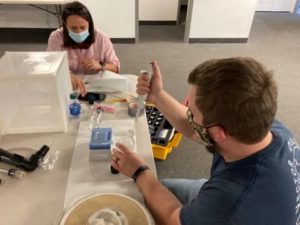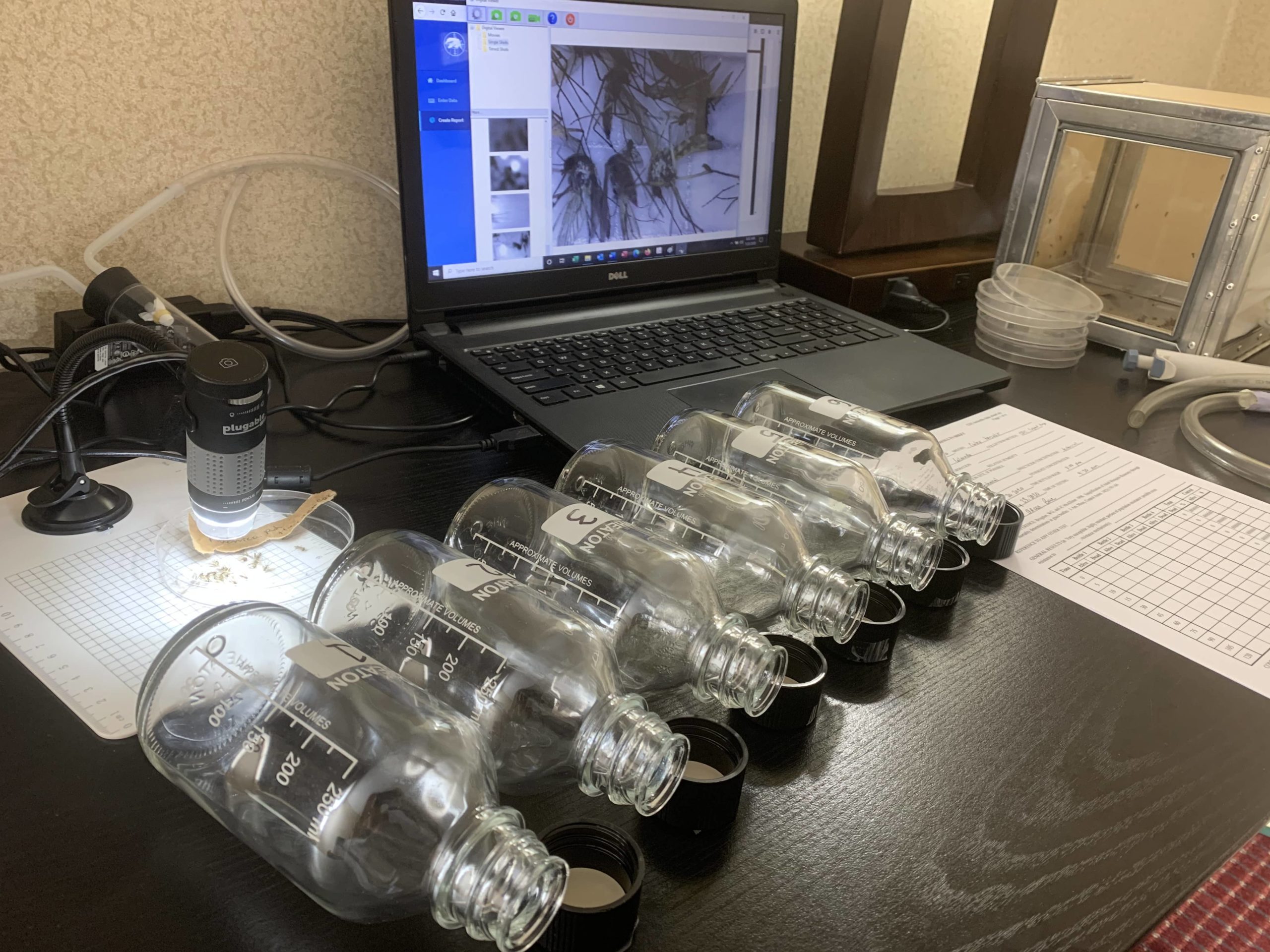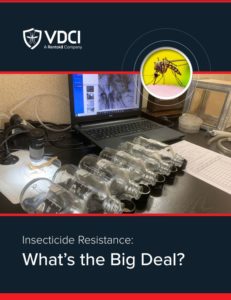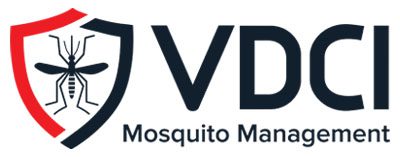What is Insecticide Resistance?
The use of insecticides to kill mosquitoes that spread mosquito-borne diseases is one part of an Integrated Mosquito Management (IMM) program. Over time and with repeated use, varying levels of insecticide resistance can occur in mosquito populations, reducing the ability of an insecticide to kill mosquitoes quickly. To delay or prevent the development of insecticide resistance in vector populations, programs should include an insecticide resistance management component. Monitoring for resistance in the vector population is essential to effective control operations and beneficial in determining the type of intervention strategies used.

Insecticide resistance can be driven by a number of factors including the misuse of pesticides, biological changes in the target population, and even behavioral changes where the mosquitoes learn to avoid certain habitats or times of day.
VDCI’s mission is to protect the community from vector-borne diseases like Zika, Dengue Fever, West Nile, and Yellow Fever. We understand that mosquitoes are not just annoying, they can be deadly. Our Integrated Mosquito Management (IMM) approach begins with monitoring larval habitats, adult mosquito surveillance, data collection, species examination, and public education prior to targeted larval and adult control applications.
Types of Insecticide Resistance
There are different types of insecticide resistance. These include cross-resistance, multiple resistance, target site resistance, and behavioral resistance. Professionals must identify the type of resistance occurring in a target mosquito population before determining the best strategy to mitigate it.
Experts can identify signs of resistance through ongoing monitoring and laboratory testing. Several types of tests can be used such as CDC Bottle Bioassays and WHO Tube tests (adult stage) and Cup Bioassays (larval stage). During each test, a sample of mosquitoes is exposed to a diluted pesticide solution and compared against a control group.

Adjusting Control Strategies when Resistance Is Detected
If signs of resistance are observed, experts can pivot the management approach in a few different ways. The product concentrations could be increased or scaled back, or experts may switch to an entirely different product.
Ultimately, the most effective way to manage mosquitoes and limit the spread of vector-borne diseases is through an Integrated Mosquito Management program. In addition to adulticiding, VDCI employs many different tools, technologies, and strategies to limit mosquitoes from the source. Mosquitoes require standing water to reproduce. Consistent surveillance, trapping, and testing can help experts identify highly-populated habitats and treat nearby water sources with larvicides.
VDCI also partners with municipalities, mosquito abatement districts, and public health organizations to provide educational information to members of the community. A single female can lay anywhere from 200-300 eggs and utilize habitats as small as a bottle cap. Simply draining water from gutters, bird baths, toys, outdoor equipment, and potted plants can help reduce mosquito populations in the area.
Insecticides are an essential tool to protect people from vector-borne diseases so it’s crucial that we preserve their efficacy for the times that we need them most.
Download the VDCI Insecticide Resistance Informative Guide

Insecticides are considered a low-risk solution to effectively manage adult mosquito populations and limit the spread of serious vector-borne diseases. Download our FREE guide to learn about insecticide resistance and discover how industry professionals are addressing this issue. Email or print and share with your stakeholders.
Contact Us to Enhance Your Mosquito Management Program:
 Since 1992, Vector Disease Control International (VDCI) has taken pride in providing municipalities, mosquito abatement districts, industrial sites, planned communities, homeowners associations, and golf courses with the tools they need to run effective mosquito control programs. We are determined to protect the public health of the communities in which we operate. Our mosquito control professionals have over 100 years of combined experience in the field of public health, specifically vector disease control. We strive to provide the most effective and scientifically sound mosquito surveillance and control programs possible based on an Integrated Mosquito Management approach recommended by the American Mosquito Control Association (AMCA) and Centers for Disease Control and Prevention (CDC). VDCI is the only company in the country that can manage all aspects of an integrated mosquito management program, from surveillance to disease testing to aerial application in emergency situations.
Since 1992, Vector Disease Control International (VDCI) has taken pride in providing municipalities, mosquito abatement districts, industrial sites, planned communities, homeowners associations, and golf courses with the tools they need to run effective mosquito control programs. We are determined to protect the public health of the communities in which we operate. Our mosquito control professionals have over 100 years of combined experience in the field of public health, specifically vector disease control. We strive to provide the most effective and scientifically sound mosquito surveillance and control programs possible based on an Integrated Mosquito Management approach recommended by the American Mosquito Control Association (AMCA) and Centers for Disease Control and Prevention (CDC). VDCI is the only company in the country that can manage all aspects of an integrated mosquito management program, from surveillance to disease testing to aerial application in emergency situations.

